The Bangalore Life Science Cluster campus hosted a unique event celebrating 30 years of the Department of Biotechnology and announcing the launch of a new EMBO-DBT partnership for funding Indian researchers.
Organized in partnership with EMBO and DBT, the event was an opportunity to hear about EMBO funding schemes of relevance to Indian researchers; now made accessible via the efforts of DBT for the benefit of the Indian scientific community. The event took place on the 2nd of February at the Dasheri auditorium where, in addition to presentations by the EMBO team, the campus also hosted eminent scientists including Professors Stephen Cohen, James Briscoe, Matthew Freeman and Nobel Laureate Prof. Christiane Nusslein-Volhard
Prof. Satyajit Mayor, Director of NCBS and inStem inaugurated the workshop, addressing the EMBO delegates, visiting scientists and the campus before inviting Prof. K. VijayRaghavan (Secretary, DBT) to speak about the role of DBT in supporting life sciences research in India. Prof. K VijayRaghavan began by stating that the year 2016, marked the 30th anniversary of the DBT, whose support in funding excellent science had been indispensable to the development of a sound platform for practical and translational as well as basic and curiosity-driven research in India. He spoke about the DBT's efforts in fostering international partnerships with organisations such as the EMBO. India's entry into the EMBO community would provide its rapidly growing research community with access to a combination of excellent facilities and opportunities for collaboration. Prof. VijayRaghavan ended his speech with the hope that the partnership between EMBO and India would open up new directions in research for the global scientific community.
Dr. Anne-Marie Glynn, the Manager of the EMBO Courses and Workshops Programme and Head of EMBO Global Activities, made a presentation outlining the funding opportunities offered by the EMBO and made available via the new India partnership. Her talk included a brief overview of the history of the EMBO and the EMBC and summaries of the EMBO funding support available to scientists. Her talk was followed by a series of scientific presentations by the visting researchers who were part of the EMBO delegation and who also highlighted how EMBO funding had impacted their own research.
Prof. Stephen Cohen spoke about 'the Drosophila tumour model', an invertebrate model system that allows screening for genes cooperating with established mutations driving cancer development. His talk explained how this system, though seemingly far-removed from a vertebrate model, could actually help to define a 'mutational landscape' providing a molecular history of the development of a tumour. Intriguingly, this function-based cancer-gene discovery system has led to the detection of several driver mutations and tumour suppressors which could be of use in the prognoses of human colorectal cancers and renal clear-cell carcinomas.
Prof. James Briscoe gave a talk about the cellular and molecular factors underlying the formation of the vertebrate neural tube. His seminar explored the generation of precise patterns of different neuronal subtypes via a graded signalling mechanism mediated through morphogens. How do secreted molecules like the hedgehog signalling proteins form a gradient? How are these gradients perceived and then interpreted by cells in a developing organism to create precise patterns of differentiation? Prof. Briscoe's talk unfolded for the audience, the events of discovery that were key points in understanding the mechanisms of these processes. The talk ended with a simple summary of a host of complex events - that the transcriptional networks within cells are ultimately responsible for generating, perceiving and interpreting signal gradients during development.
Prof. Briscoe's talk was followed by a fascinating seminar by Prof. Mathew Freeman about the cell biology of signalling, where he focussed on the function of intramembrane proteins of the rhomboid-like superfamily. These proteins dubbed 'iRhoms', are closely related to Rhomboid proteins, which, through their intramembrane serine protease activity mediate the 'shedding' or secretion of a variety of growth factors. iRhoms, however, lack protease activity, but nonetheless play a crucial role in signalling by modulating growth factor secretion. Through a series of knockout experiments in mice, Prof. Freeman's team have shown that the iRhoms act as 'ferries' to certain proteins involved in the secretion of growth factors. His seminar highlighted the role of pseudoenzymes as important elements within cellular trafficking and signalling pathways.
After a brief break for refreshments, the scientific bonanza continued with a talk by Prof. Christiane Nusslein-Volhard, who spoke about the development of colour patterns in fish. Her talk began with some insights into variations in form, especially colours and patterns that one finds in nature. A tractable model system is needed for understanding the origins of such variation and the zebrafish is an organism that is admirably suited to such studies. Work from the Nusslein-Volhard group has shown that the striped patterning in zebrafish is generated by overlapping sheets of different pigment cells. Her group's work on mutant zebrafish with variations in patterning has highlighted several mutations in genes involved in direct cellular interactions, but none in genes belonging to signalling pathways. Prof. Nusslein-Volhard ended her talk by speculating that pattern formation in zebrafish could be wholly dependent on direct cell-to-cell contacts, rather than through morphogen-directed gradient signals.
The EMBO-India partnership symposium concluded with a panel discussion where students and faculty members from NCBS and inStem conversed with the EMBO delegates on a variety of issues in science. Queries ranged from 'Do you think curiosity-driven science is harder to do now than, say, 20 years ago?' to 'How does one represent science to politicians?' to questions on whether changing fields of research after a PhD was advisable. The session, though short, was a lively one with much laughter and debate, and impressed upon the participants that exciting days and many opportunities lay ahead for the future of science in India.
About EMBO:
EMBO is an organization of leading researchers that promotes excellence in the life sciences. The major goals of the organization are to support talented researchers at all stages of their careers, stimulate the exchange of scientific information, and help build a research environment where scientists can achieve their best work. For more information: http://www.embo.org/about-embo
About DBT:
The Department of Biotechnology (DBT), under the Ministry of Science and Technology, Government of India, provides major support for research, capacity building and commercialization in the field of modern biology and biotechnology in India. For more information: http://www.dbtindia.nic.in/
About the new Funding schemes:
The Government of India and the European Molecular Biology Conference (EMBC) and the European Molecular Biology Organisation (EMBO), have recently signed an agreement inducting India as a member state of the EMBC and EMBO. The agreement will have far-reaching implications for Indian science through the strengthening of links between the Indian and European life-sciences research communities. For more details, please visit https://indiabioscience.org/meetings/india-embo-launch-series
Photocredits belong to www.clickstoremember.com and the NCBS Communications Office.


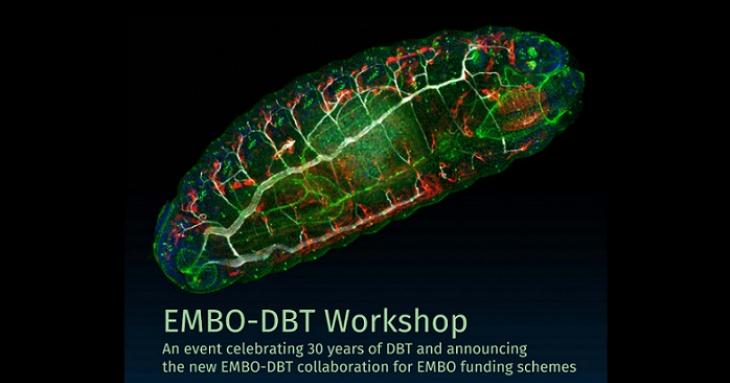
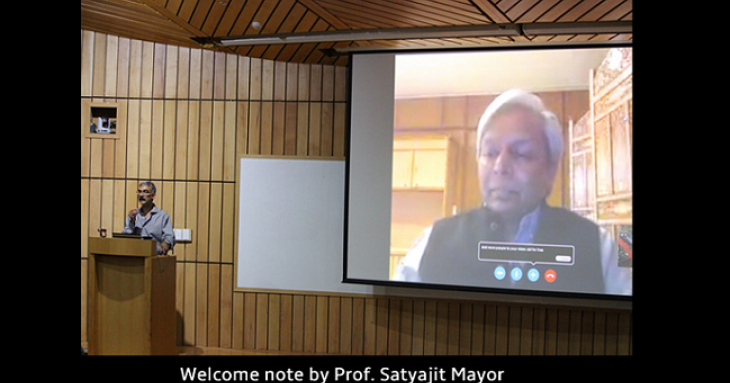
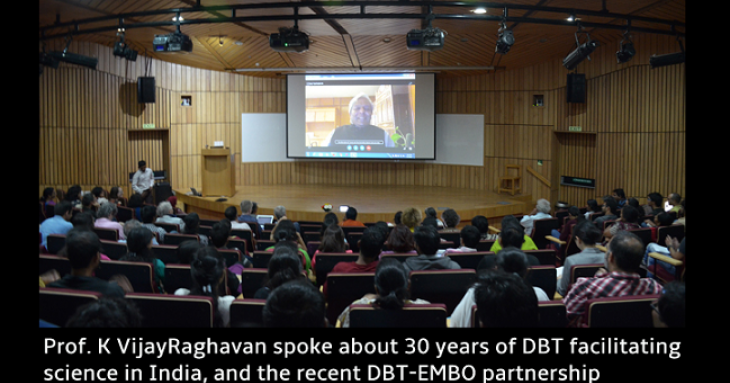
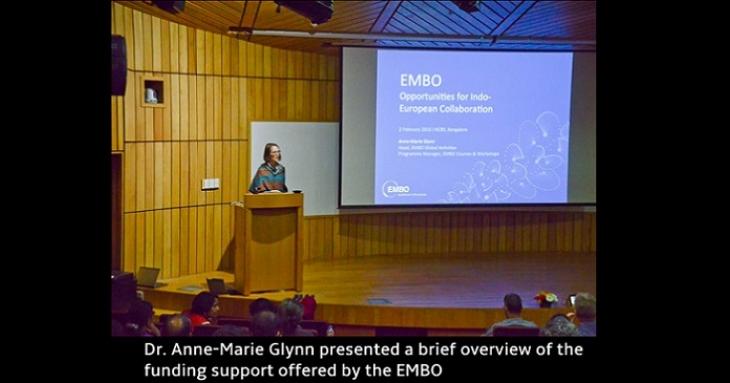

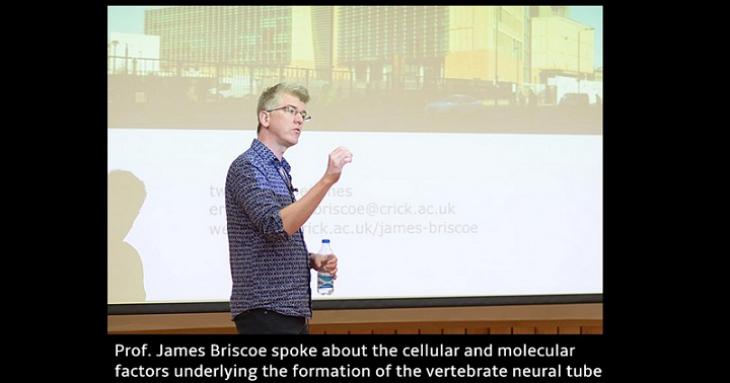
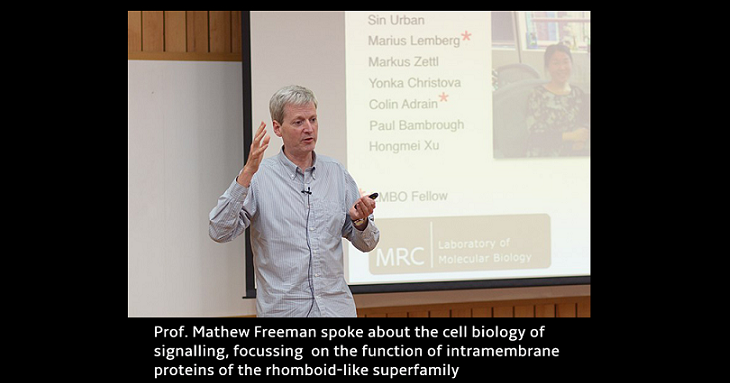
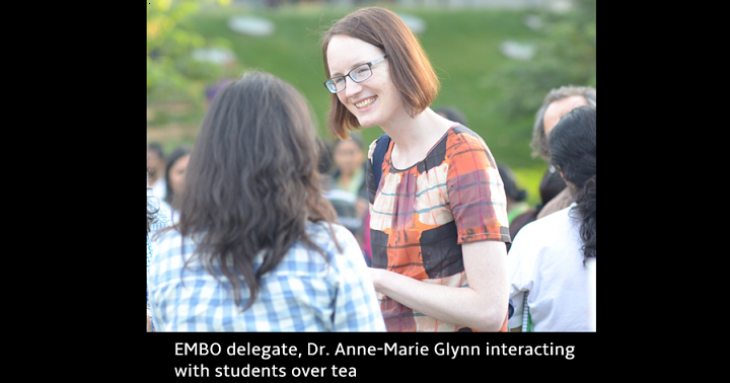
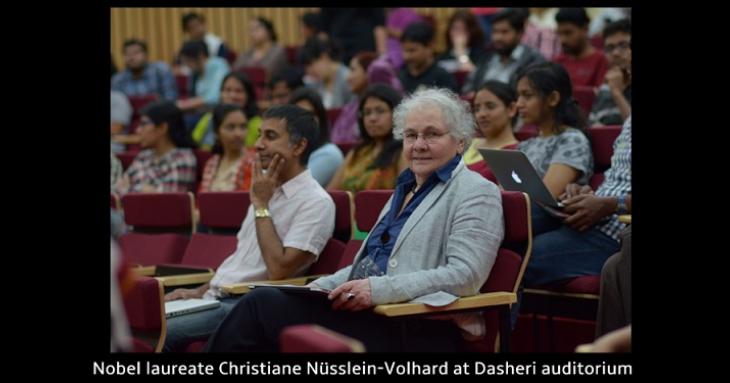
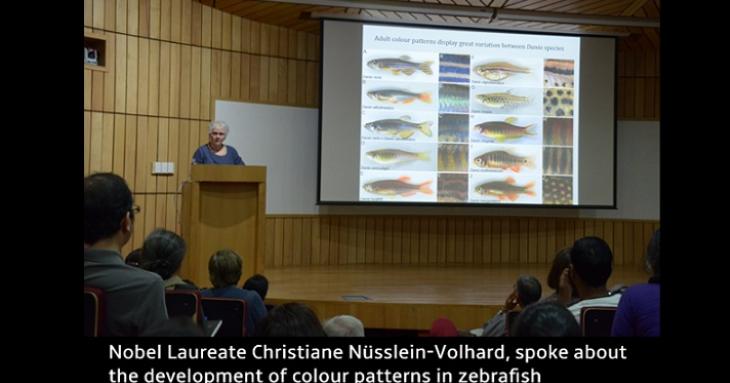
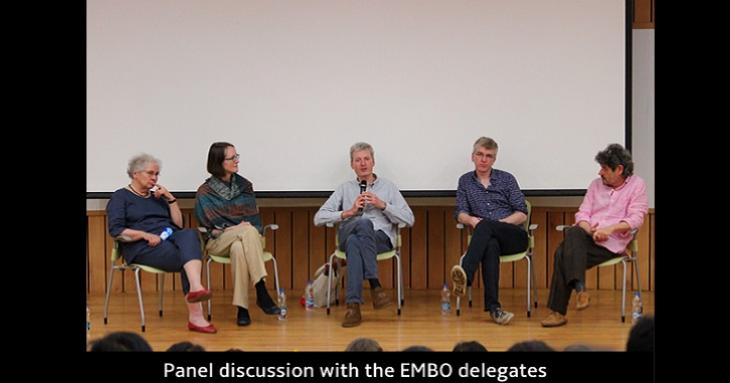







0 Comments